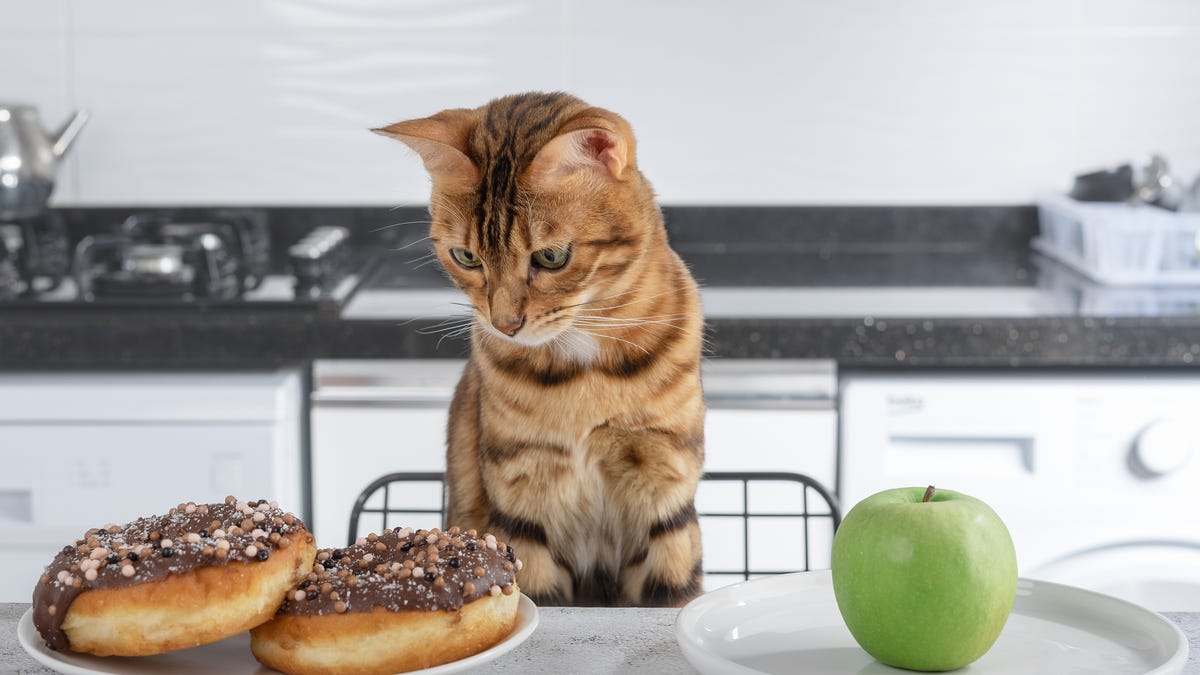
While humans continue to grapple with shortages of weight loss drugs like Ozempic and Wegovy, their furry friends may soon be in luck: Drug manufacturers are now working to develop comparable GLP-1 drugs for pets.
Okava Pharmaceuticals, a company that specializes in adapting human medication for pets, recently published the results of a pilot study testing their weight-loss drug, OKV-119, on domestic cats. The company worked with biopharmaceutical company Vivani to develop a drug delivery system for cats that would provide felines with the continuous exposure to the drug that humans get through regular injections.
Advertisement
Okava CEO Michael Klotsman told Bloomberg that the study “was really designed to test whether or not we were getting good drug release.” Preliminary testing, however, did reveal that some cats did lose weight while taking the drug.
Okava’s study follows pet wellness company Better Choice acquiring Aimia Pet Healthco in February with the intention of developing an animal weight loss drug of their own. In both cases, the companies cited GLP-1 drugs as the basis for their own developments.
Advertisement
“More than half of all dogs and cats worldwide are classified as overweight or obese and can suffer from the same weight-related health complications as humans – including arthritis, diabetes, and high blood pressure,” a BetterChoice press release read.
“The goal of the research and development work is to mirror the weight loss benefits of leading brands for domestic animals and in humans including Slentrol, Wegovy, Ozempic, and Mounjaro with added protein and nutrients from the Company’s halo products to promote lean muscle and overall pet health.”
Advertisement
The Food and Drug Administration approved Slentrol, a weight management drug for canines, back in 2007. The drug was eventually pulled from the market in 2014 — with some theorizing that human guilt was hindering its popularity.
“I think I had one of the only dogs that was on it, and I’m going to make myself sound really bad when I explain why,” Kristin Peck, the Chief Executive Officer of animal medicine company Zoetis, told CNBC earlier this year.
Advertisement
“I don’t think a lot of people wanted to get their dogs weight loss drugs because if your dog is overweight, you have to admit that the reason is probably you’re not walking it and are feeding it too much.”
While Slentrol was not a GLP-1 drug, the next generation of pet weight loss products are expected to be more like Ozempic and similar products.
Advertisement
Still, some veterinarians caution that weight loss drugs could have adverse effects on animals — emphasizing that there are other non-pharmaceutical ways to treat pet obesity.
“I would lean far more towards exhausting every traditional way of a pet losing weight with diet, exercise, looking for underlying endocrine issues,” veterinarian Jeanne Ficociello told Bloomberg. “I’d be far more inclined to go that route before I considered a GLP-1.”
This post was originally published on this site be sure to check out more of their content.













































